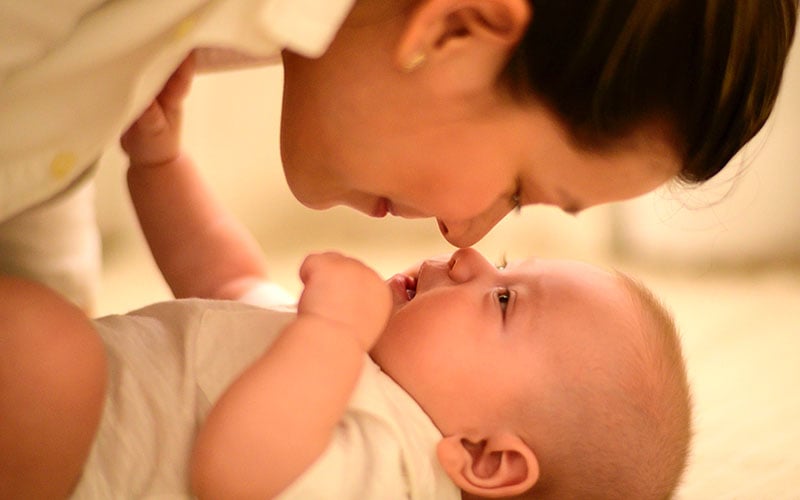Julie Mallon explains
With more than 30 years of experience as a health visitor, midwife and community nurse, Julie works with parents as a certified sleep consultant, with training from the International Maternity Institute. As a maternal support educator at Nurture to Sleep, Julie takes an emphatic yet scientific approach to her role. (Tel +971 56 115 6134)
How important is the sleeping environment?
This is very much about safety, love and security which are interwoven and build the trust of our babies to sleep. Within, communication security needs to be developed as does creating physical environmental security. We as adults sleep best in our beds – that we are familiar in – and our children are the same. A number of studies have shown a link between irregular sleep locations and sleep issues.
How do you create a nighttime routine?
Newborns have no concept of day or night, and have no internal clock of when they should be awake or asleep in those early days – they just know when they’re hungry and when they’re not. By establishing a calming nighttime routine, you can help them learn that evenings are for winding down, and night is for sleeping. A soothing bath, followed by a little baby massage with calm physical contact. A white noise machine can also be very beneficial as they are reminiscent of the loud sounds that a baby heard in the womb for nine months. Never underestimate just how much a baby can understand and what they are absorbing. Have a predictable routine and focus on keeping a baby’s room cool at 20-22C, dark and quiet to support better sleep.
Why does a child wake up during the night?
There are several factors – are they experiencing a cognitive growth spurt, are they breastfed or formula-fed, have they developed age-appropriate self-soothing skills? There are so many variables within the first year and sleep is very dynamic and not a straight line. It must also be genuinely noted that all children are different and that ‘national sleep averages’ are exactly that – averages.
How do you set a sleep schedule for your baby?
It’s important to have realistic expectations and know that a flexible, organic and age-appropriate routine is far more achievable. From about six months,
I recommend putting children to bed when they are drowsy but still awake, so that they can develop appropriate sleep-onset associations and learn to fall asleep on their own. This also helps children to fall back asleep quickly when they wake up.
Is co-sleeping safe?
I think this is such a personal questions, and of more importance for parents to know that there are some circumstances in which co-sleeping with your baby can be very dangerous: Such situations include when one or both parents smoke (even if they do not smoke in the bedroom) or drink, if a parent is extremely tired or taking medication, and when a baby was born premature or at low weight.
When should a baby be sleeping through the night without feeding?
From six months old, a well-rested baby should be down to a one feed per night maximum. Most healthy infants start going all night without eating, anywhere between eight to 12 months. This depends on the individual child and how advanced the child is with solids.
– For more about Dubai’s lifestyle, news and fashion scene follow Emirates Woman on Facebook and Instagram
Image: Unsplash












